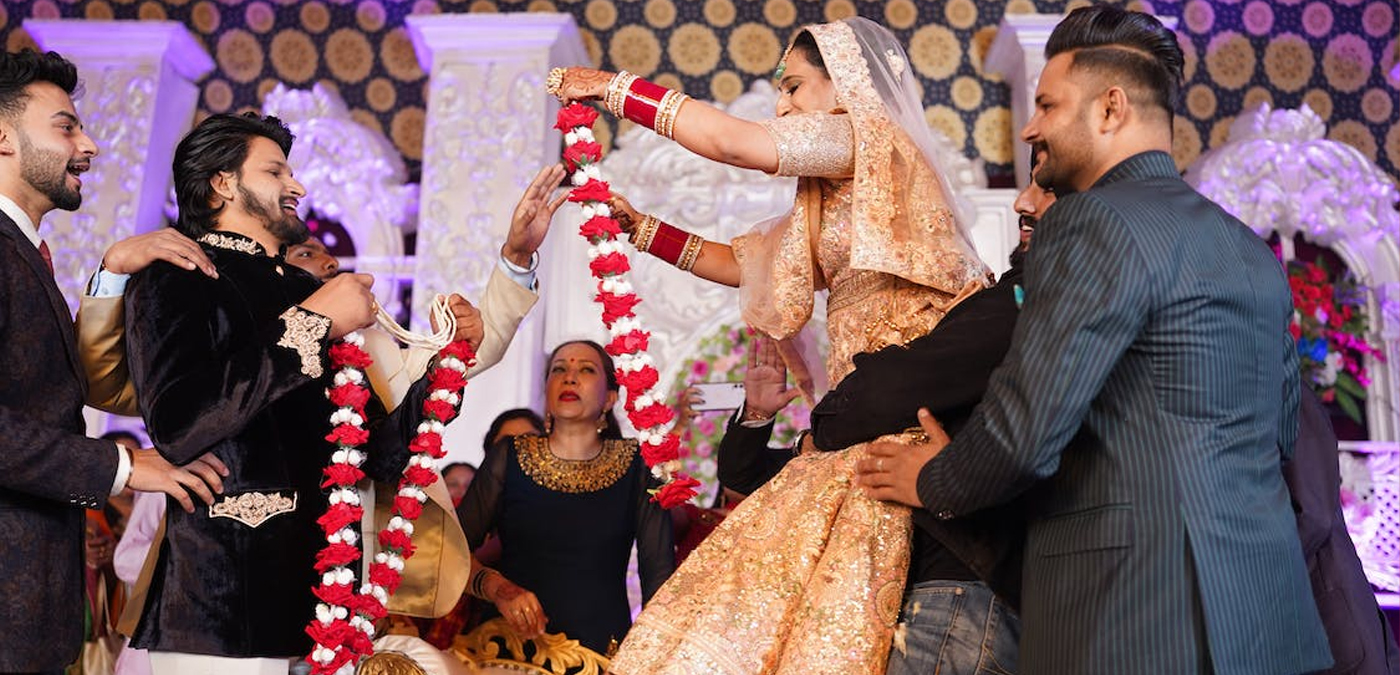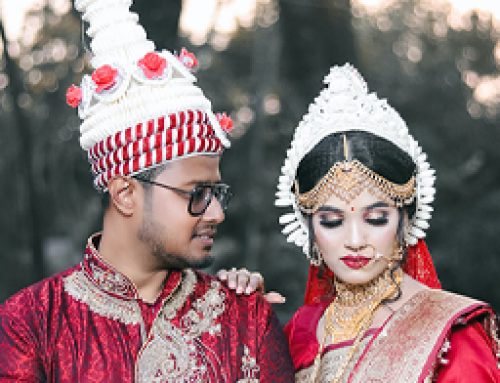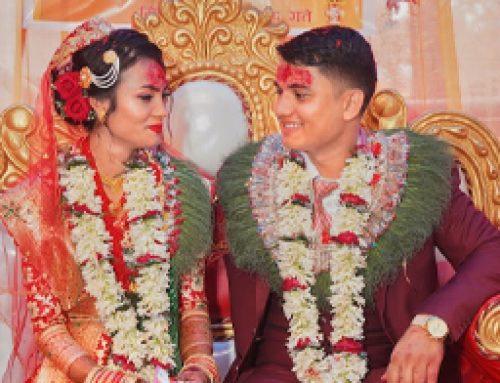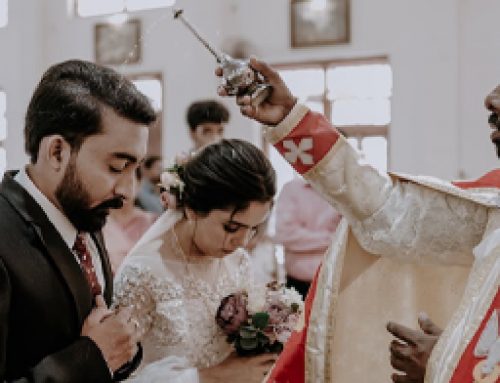Pahadi Wedding Traditions, Rituals, and Customs
Pahadi weddings, also known as weddings in the mountainous regions of North India, have their unique set of traditions and customs that reflect the culture and heritage of the Pahadi community. These weddings are characterised by their simplicity, natural beauty, and close-knit celebrations. Let’s delve into the details of Pahadi wedding traditions:

Pre-Wedding Rituals:
- Roka: The Roka ceremony marks the formal engagement between the bride and groom. It involves the exchange of gifts, blessings, and the acceptance of the marriage proposal by both families. This ceremony signifies the official announcement and acceptance of the alliance.
- Tilak: The Tilak ceremony is a ritual where the groom’s family visits the bride’s home and presents gifts, including clothes, sweets, and jewelry, to the bride. The groom’s forehead is adorned with a red mark (tilak) made of vermilion or sandalwood paste by the bride’s father or an elder male member of her family.
- Ring Ceremony: The ring ceremony, also known as the engagement ceremony, is a formal event where the bride and groom exchange rings in the presence of their families and close relatives. It symbolizes their commitment and love for each other.
Wedding Rituals:
- Baraat: The Baraat is the groom’s procession that accompanies him to the bride’s house. The groom, usually dressed in traditional attire, rides a decorated horse or sits in a car while his family and friends dance and celebrate with music. The procession is led by a band, and the atmosphere is filled with joy and enthusiasm.
- Jaimala: The Jaimala ceremony is the exchange of garlands between the bride and groom. They put garlands made of flowers around each other’s necks, symbolizing their acceptance of each other as life partners.
- Pheras: The Pheras are the most important and sacred ritual of a Pahadi wedding. The couple takes seven rounds around the holy fire (agni) while reciting sacred vows and mantras. Each round represents a promise and commitment they make to each other. The Pheras signify their union and the beginning of their journey together as husband and wife.
- Kanyadaan: Kanyadaan is a significant ritual where the bride’s father gives her away to the groom. It symbolizes the father’s trust in the groom and his willingness to entrust his daughter’s well-being to him.
- Sindoor and Mangalsutra: After the Pheras, the groom applies sindoor (vermilion) on the bride’s hair parting and ties the mangalsutra (sacred necklace) around her neck. These are symbolic of the bride’s marital status and represent her commitment to her husband.
- Vidaai: Vidaai is the emotional farewell of the bride from her parental home. It is a heartfelt moment as the bride bids adieu to her family and leaves with the groom to start her new life. The ceremony is accompanied by tears, blessings, and a mix of emotions.
Post-Wedding Rituals:
- Griha Pravesh: The Griha Pravesh is the bride’s entry into the groom’s house. She is welcomed by her new family with traditional ceremonies, arti, and blessings. This marks the beginning of her new life as a member of her husband’s family.
- Reception: A reception is usually organized to celebrate the union of the bride and groom. It is an opportunity for the families to introduce the newly married couple to their extended relatives, friends, and community members. The reception includes music, dance performances, and feasting.
- Pag Phera: Pag Phera is a ritual where the newly married couple visits the bride’s parental home after a few days of the wedding. It allows the bride to reconnect with her family and strengthen the bond between the two families.
Cultural Elements:
Pahadi weddings are deeply rooted in the cultural traditions of the region. They often incorporate folk music, dance performances, and traditional attire. Local musical instruments like dholak, nagada, and flute are used to create a vibrant and celebratory ambiance. The bride and groom typically dress in traditional Pahadi attire, which may vary depending on the specific community and region.
Pahadi weddings are known for their simplicity, warmth, and a strong sense of community involvement. They bring together families, relatives, and friends to celebrate the joyous union of two souls. The customs and rituals in Pahadi weddings highlight the rich cultural heritage and values cherished by the Pahadi community.
Wedding Venue For Pahadi, Garhwali, and Kumaoni Wedding in Melbourne
Seasons5 offers a vibrant atmosphere and wedding venues along with dedicated staff to help you on your big day. Nestled in the lush greenery of Point Cook, we’ve got indoor & outdoor locations and luxurious accommodations too. Our private lake and waterfall make for a picturesque scene for wedding photos.
Crafted with local and fresh ingredients, our Cinnamon Bay Restaurant offers delicious meals for wedding celebrations. You can also enjoy our day spa to relax and rejuvenate. Feel free to call us on 038376 5300 or drop an email at contact@seasons5.com for more information.








